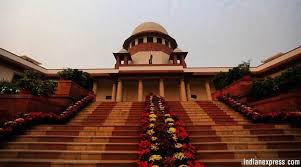Constitution of India, Article 226 – Quashing of FIR – Unlawful Contract – Entire material on record clearly reflects that it was totally an unlawful contract between the parties where money was being paid for securing a job in the government department(s) or private sector – Apparently, a suit for recovery could not have been filed for the said purpose and even if it could be filed, it could be difficult to establish the same where the payment was entirely in cash – Respondent no.6 found out a better medium to recover the said amount by building pressure on the appellant and his brother by lodging the FIR – Under the threat of criminal prosecution, may be the appellant would have tried to sort out and settle the dispute by shelving out some money –The report from the previous inquiry reflects a convoluted landscape and unveils a trail of unethical, maybe even criminal, behaviour from both parties – The unexplained inordinate delay in bringing these allegations to the police’s attention despite knowledge of previous inquiry, raises even more doubts and adds a layer of scepticism to the authenticity of the claims – Object of this dispute, manifestly rife with mala fide intentions of only recovering the tainted money by coercion and threat of criminal proceedings, cannot be allowed to proceed further and exploit the time and resources of the law enforcement agency – Held that such criminal prosecution should not be allowed to continue where the object to lodge the FIR is not for criminal prosecution and for punishing the offender for the offence committed but for recovery of money under coercion and pressure and also for all the other reasons stipulated above – Impugned order passed by the High Court set aside and the entire proceedings arising out of FIR 248 of 2022 liable to be quashed. (Para 13 to 17)
SUPREME COURT OF INDIA
2024 STPL(Web) 106 SC
[2024 INSC 117]
Deepak Kumar Shrivas & Anr. Vs. State Of Chhattisgarh & Ors.
Criminal Appeal No. 1007 of 2024 @ Special Leave Petition (Crl.) No. 9800 of 2023-Decided on 19-2-2024
https://stpllaw.in/wp-content/uploads/2024/04/2024-STPLWeb-106-SC.pdf







